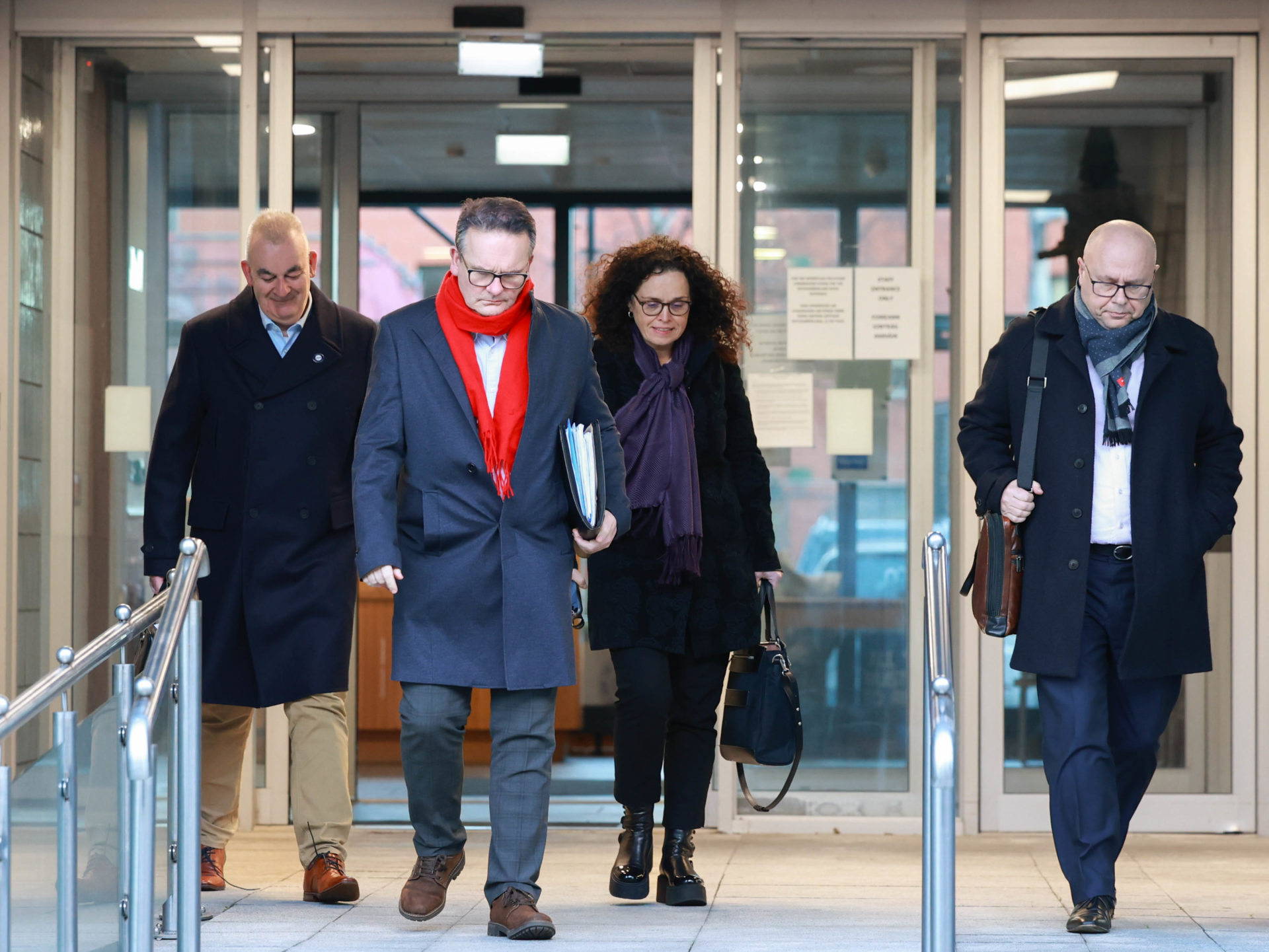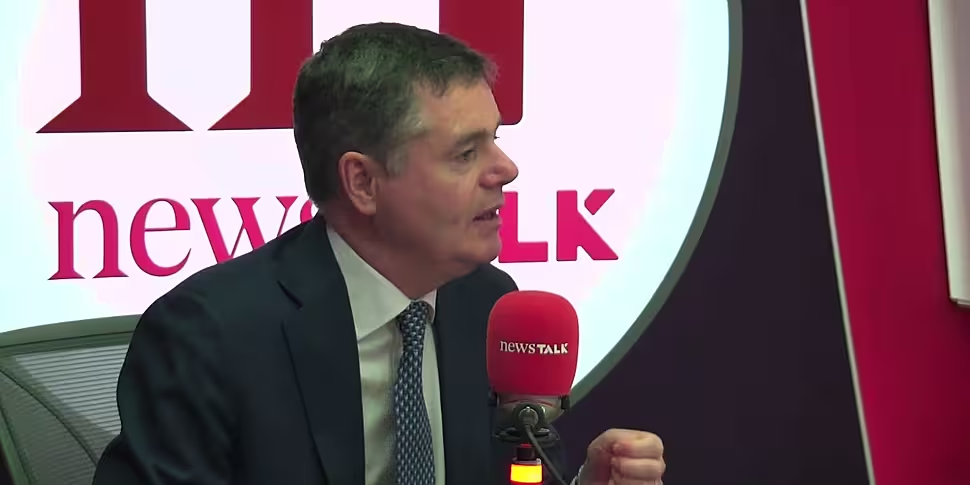The Government understands the difficulties guards, nurses and teachers are facing ‘only too well’ – but negotiators have to get an affordable deal for the taxpayer, Paschal Donohoe has insisted.
The Public Expenditure Minister was speaking moments after negotiators agreed a new €3.6 billion Public Sector Pay Deal.
The deal will see nearly 400,000 public sector workers getting scheduled pay rises for the next two and a half years.
The pay rise will be worth 10.25% - made up of increases totalling 9.5%, with 1% available for ‘local bargaining’.
Meanwhile, some of the increases are set down in ‘fixed payment’ terms – meaning the lowest paid workers could get increases of up to 17.3%.
 Union leaders leave the Workplace Relations Commission in Dublin, 26-01-2024. Image: Sam Boal/RollingNews
Union leaders leave the Workplace Relations Commission in Dublin, 26-01-2024. Image: Sam Boal/RollingNewsMinister Donohoe told The Pat Kenny Show that he will be recommending the deal to Government as the 19 unions involved in the talks recommend them to their nearly 400,000 members.
He said Public Sector Pay Agreements over the years have recognised the value of public servant’s work while also remaining fair and affordable for taxpayers.
“I strongly believe the agreement, which was hard negotiated by both sides, gets that balance right again,” he said.
Deal
He said the fixed payments will ensure the agreement benefits those on the lowest incomes.
“Overall, the agreement is worth more to those who are on low and middle incomes within our public service than those who are on higher incomes,” he said.
“Reflecting the fact that, of course, those who are on lower incomes are more affected by what has happened, with prices going up.”
Gardaí
The General Secretary of the Association of Garda Sergeants and Inspectors (AGSI) Antoinette Cunningham has said she will be discussing the deal with members today – but warned that Government negotiators showed no real understanding of the difficulties facing Gardaí in Ireland today during the talks.
She said the AGSI remains “concerned overall about how Garda pay is negotiated and the Department of Public Expenditure and Reform's lack of understanding of Garda work-related issues”.
Minister Donohoe rejected the accusation.
“We understand only too well but this is a negotiation and we are trying to come up with an agreement that works for 400,000 public servants,” he said.
“You were asking me questions earlier on about the affordability of this and ultimately, a compromise is reached and when a compromise is reached, it's still the case that not everybody will feel that the compromise that has been reached is what they were hoping for.
“I still believe and hope coming out of the process this morning, the case will be made not only by me but by others regarding why this is a fair and an affordable outcome that recognises all the work that's been done in our public services.”
Public Sector Pay
He said the reason the agreement includes a local bargaining element is to “handle issues that are specific to different parts of our public service”.
Here’s when public workers can expect each pay increase over the next two-and-a-half years:
2024
- January 1st: A backdated pay rise25% or €1,125, whichever is greater
- June 1st: A 1% pay rise
- October 1st: A pay rise of 1% of €500 whichever is greater
2025
- March 1st: a pay rise of 2% or €1,000, whichever is greater
- August 1st: A pay rise of 1%
2026
- February 1st: A pay rise of 1% or €500, whichever is greater
- June 1st: A pay rise of 1%
- September 1st: A local bargaining instalment worth 1% of basic pay cost









